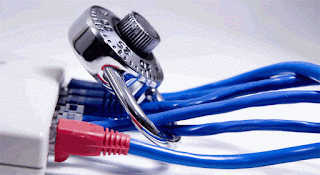Recently the words Net
Neutrality have taken the media by storm. Everyday we hear some protesting against it while some in support of it. The
argument is over the fact that People who pay
more for internet usage will get a higher speed and access to sites and
other work which involves internet whereas those who would pay less or won’t pay at all will have limited options, their speed
will be limited and would not be able to able to access content which they
able to access now. This has caused a huge debate among the masses as Internet
is one body which should be equal for all.
The debate over whether Net Neutrality should be applied in India and
the Airtel Zero program has involved some of the biggest names in Media and
Internet.
Net Neutrality implies that all internet data pack should be treated equally, there should not be any fast or slow lanes for internet, or that users should pay differently for accessing some sites. The Telecom Regulatory Authority Of India(TRAI) which has come up with a paper to implement the law on internet usage has received 6lakh emails so far from people throughout the country.
If the regulations
laid out by TRAI come into action the lives of every person would get affected
both in good and bad ways. Before looking at how a common man would get
affected lets focus on the companies.
In a country like India where startups
are heavily dependent on the internet
for the success of their business, applying regulations on internet usage would
only destroy their business. Also if this regulation is applied chances are
that Gmail would get faster than Microsoft Outlook or Yahoo or vice versa
depending on who pays more to the internet service provider.
As for how the common
person would get affected if regulations on internet usage are applied, we can
look at the pros and cons of this application.
Pros for net neutrality:
- No restriction: currently there are any restrictions on what parts of the Internet people can access. Leaving aside the sites, which are meant for government use, people have the liberty to access and use the content from any site. For example there are no restrictions over emailing, file sharing, instant messaging and much more. With the regulations in action all these would be gone, and would only be accessible by payment.
- No Throttling: Currently the Internet service providers cannot change the download or upload transfer rates which people are using.
- No censorship: There is no restriction on how much and what people download, except for the connection rates.
- Capitalism: Net neutrality currently provides an equal opportunity to rise for all the starters, if gone the startups would face heavy losses.
Cons against Net Neutrality:
- Restrictions or Censorship – With regulation over net usage in play, the internet service providers (ISP’s) can restrict what users view on the internet. They could block certain services like peer to peer file transfer etc. Also the ISP’s would have the power to stop any criticism against themselves and any political leader or party.
- Anti competition: The ISP’s would have an advantage to stop or restrict users from accessing content of their competitor.
- Throttling: The ISP’s would control what type of data will have what transfer rates. For ex: Google’s email would be faster than Microsoft Hotmail, or vice versa depending upon who pays the ISP more. Also peer to peer file transfer could be slower than email depending on which carries less data.
- Money: ISP’s could charge more money for the users who use more internet. The ISP’s have the belief that the heavier users should pay more.
- Monitoring: With Net Neutrality out of picture the ISP’s could track down what content the users access on the internet and can use that information’s they choose thus keeping the privacy if the user in jeopardy.
In my point of view Internet
had and should always be a source of
free knowledge for the users. It should be free and the users should not be
charged for it. There should not be put any such constraints that those who pay
more would getter better facilities, as compared to others who don’t. As for
the people who don’t have Internet access the government must make arrangements
to make them exposed to the Internet world so that they too can learn and grow
and become better human beings.
About the Author:
Shekhar Tanwar is a computer science engineer who is working
with a renowned MNC and is a die heart defense aspirant. Guitar is his
passion and he is very firm believer of physical fitness. This article is a
way to help defense aspirants to present his critical views on the topic, on
the forum so that collective exchange of thoughts can take place.
|



No comments:
Post a Comment